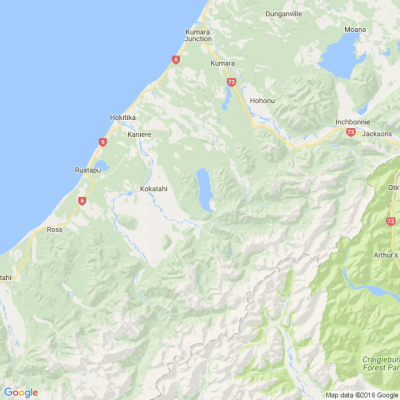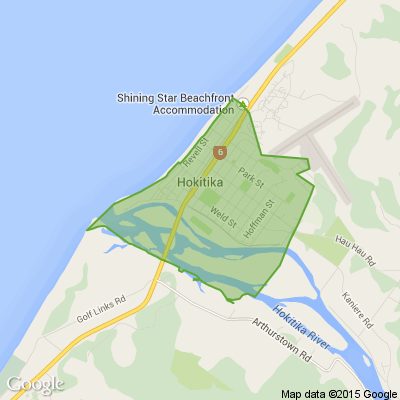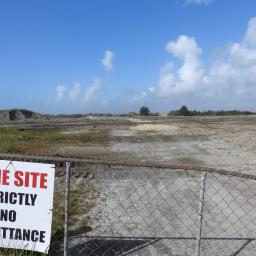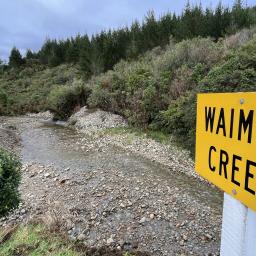Importance of New Zealand’s largest mining region underscored
By local democracy reporter Brendon McMahon:
The high profile West Coast mining sector can no longer be just characterised as coal and gold but as a linchpin to the region's economy and vital services.
That's the view of Te Tai o Poutini Plan principle planner Loise Easton who offered her opening statement on day one of the formal hearings into the proposed ‘one district plan’.
The all-encompassing plan will eventually replace the current three district plans that operate across the West Coast.
She noted the region had the largest coal mine in New Zealand, at Stockton – with an historic footprint bigger in area than the city of Christchurch.
At the same time “a plethora” of other resources in the ground such as rare earth minerals were coming into prominence thanks to international demand for high tech components for the likes of electric cars and solar panels.
“Often it’s a case of many of those things people haven’t paid much attention to in the past, but now are part of the potential economic future of the West Coast.”
Easton told hearing commissioner Paul Roger that while employment numbers at Stockton were lower than historically, the region was largely dominated by many small mines employing from two to three people.
Easton said even though the domestic coal market was being pared back the necessity for high quality thermal coal exported from the region for steel manufacture "can't be replaced" yet.
At the same time gold mining in the region remained significant.
The mainly alluvial gold sector was not in decline as evidenced in the Reefton area with significant investigation of new permits underway.
“Mineral extraction is what the West Coast has been built on. With the decline in coal, it does not mean the end of mining on the West Coast,” said Easton.
A big question for the TTPP planners had been what happened when current mine licences expired, and this had partly driven the designation of a Minerals Zone within the proposed plan, she said.
Currently much of the region was subject to Crown Mineral Licence system, with the likes of Stockton still operating under that system after decades rather than through the newer RMA regime.
However while Stockton's licence was due to expire in 2028, the footprint was huge with significant parts of the Stockton Plateau subject to extensive and ongoing rehabilitation, including over areas that had historic acid mine problems dating from 19th century mining.
“All of these are in the wider Stockton area, operating under the mining licence system.
“While stuff may not be coming out of the ground, rehabilitation is going on.”
This had seen “huge impact” in the improved health of some Buller waterways by dealing with a legacy of leaching from aggregates exposed through mining back to the 19th century.
Easton said while mining drove a "huge strategic direction" the other reality was the region also had five national parks within its boundary, with 84% of the land area under Crown agency control.
Alongside that much of the private land in the region - to be subject to the SNA process - had significant biodiversity along a long and significant coastline.
As such, the recently promulgated West Coast Policy Statement "does set a very strong direction for the natural environment."
Poll: Should the government levy industries that contribute to financial hardship?
As reported in the Post, there’s a $30 million funding gap in financial mentoring. This has led to services closing and mentors stepping in unpaid just to keep helping people in need 🪙💰🪙
One proposed solution? Small levies on industries that profit from financial hardship — like banks, casinos, and similar companies.
So we want to hear what you think:
Should the government ask these industries to contribute?

-
59.5% Yes, supporting people is important!
-
26% No, individuals should take responsibility
-
14.5% ... It is complicated
A Neighbourly Riddle! Don’t Overthink It… Or Do?😜
Do you think you know the answer? Simply 'Like' this post if you know the answer and the big reveal will be posted in the comments at 2pm on the day!
If you multiply this number by any other number, the answer will always be the same. What number is this?

Have you got New Zealand's best shed? Show us and win!
Once again, Resene and NZ Gardener are on the hunt for New Zealand’s best shed! Send in the photos and the stories behind your man caves, she sheds, clever upcycled spaces, potty potting sheds and colourful chicken coops. The Resene Shed of the Year 2026 winner receives $1000 Resene ColorShop voucher, a $908 large Vegepod Starter Pack and a one-year subscription to NZ Gardener. To enter, tell us in writing (no more than 500 words) why your garden shed is New Zealand’s best, and send up to five high-quality photos by email to mailbox@nzgardener.co.nz. Entries close February 23, 2026.









 Loading…
Loading…





